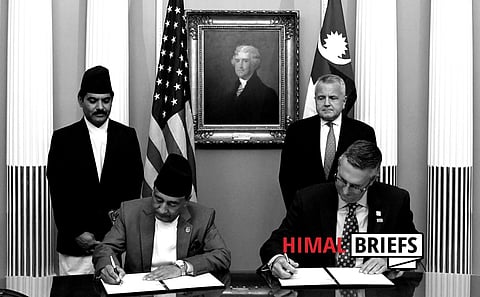The yam between three boulders
At Himal Southasian, we are aficionados of the long read, but we do understand that both attention (and time) are scarce. That's the thinking behind Himal Briefs – a new initiative that will bring crisp, informed, contextual analysis from across Southasia. As the series title suggests, we aim to keep it short (if not sweet!) It is also a nod to the Briefs section from our print magazine days, which long time readers may recall. Our aim is to capture recent developments that our longer pieces might sometimes miss.
Expect an insider's view from some former contributors (and a few new faces) on major developments as well as underreported topics from across the region, ranging from politics, to social issues, legislation, economic concerns, cultural debates, the environment, and media and the public sphere. We hope Himal Briefs makes it to your reading lists.

